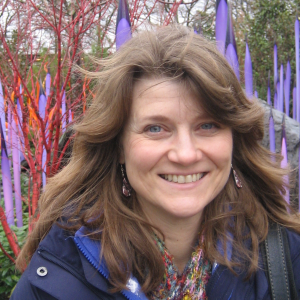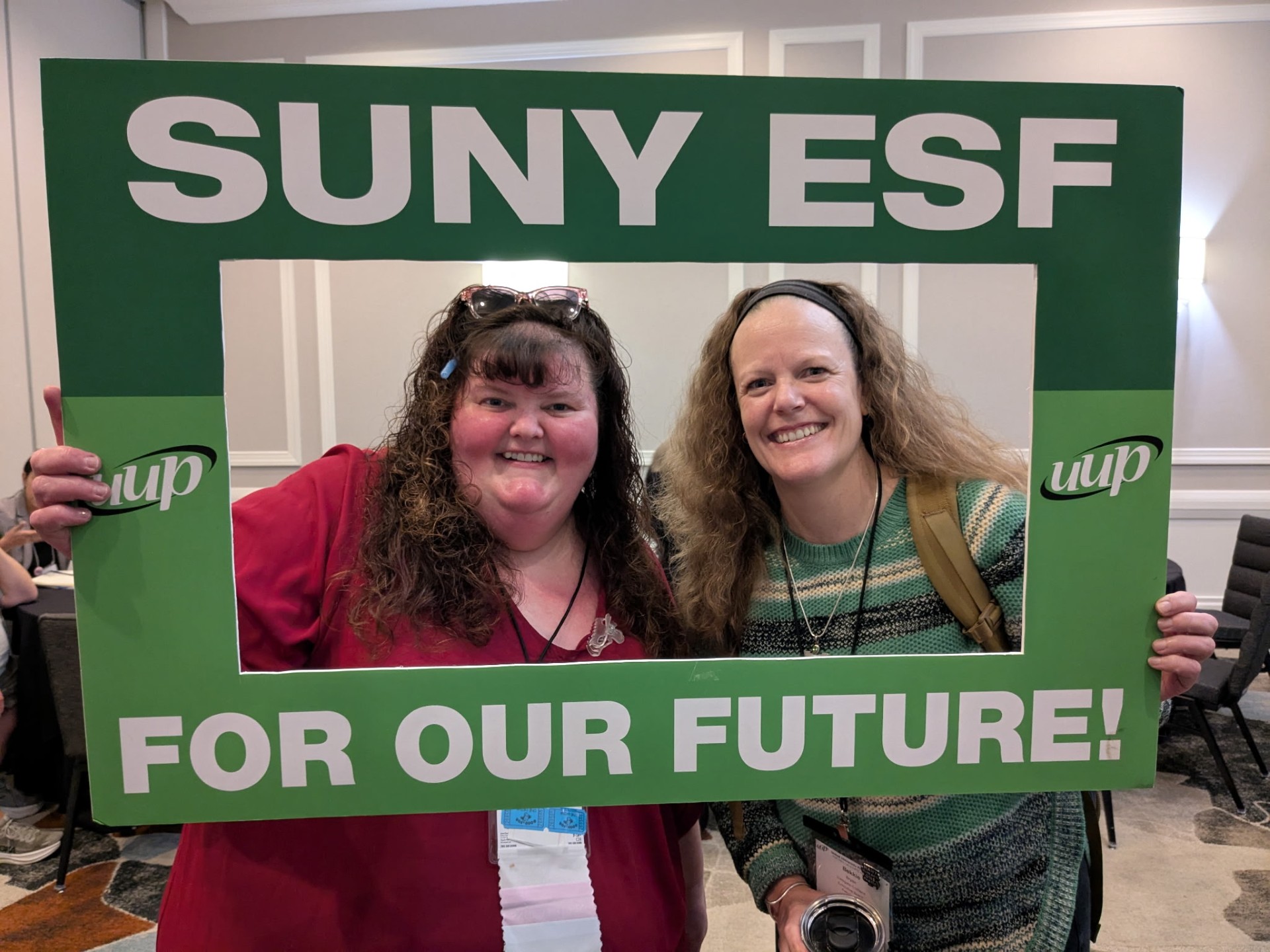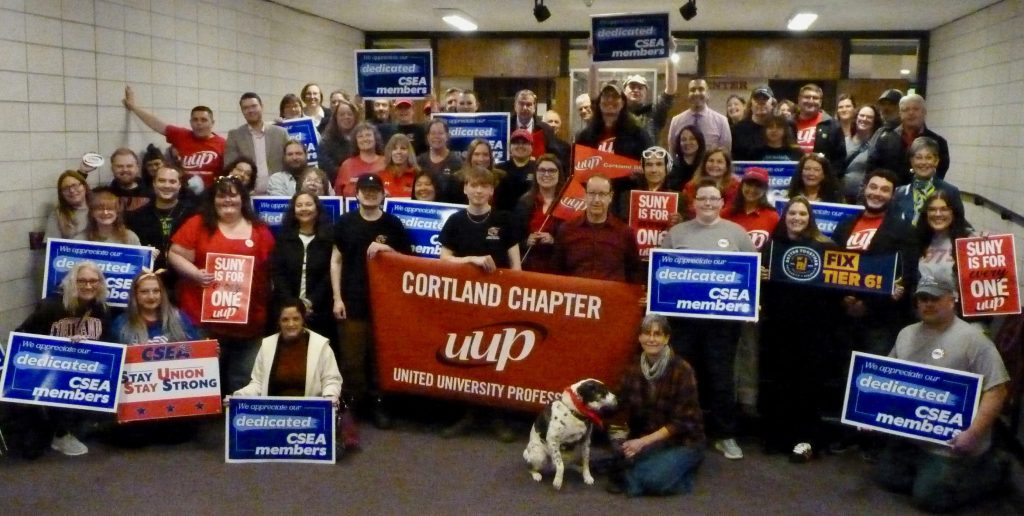
By Dr. Gigi A. Peterson, History –
The COVID pandemic continues to spotlight many problems in our society and its institutions, among them the exclusion of many stakeholders from the decisions that shape their working environments. Some of the frustrations that I, and others, experienced in the past now seem somewhat quaint given our current circumstances.
In the Fall 2019 Cortland Cause, I described the struggle to address classrooms that were dangerously overheated—a struggle that required student action, faculty voices, UUP surveys and negotiations, and some changes in the personnel and approach of key campus offices. The struggle originated as my students and I recorded temperatures up to 100 degrees in the spaces in which we had to work—and got the brush-off when I reported these. Change was slow, and incomplete, but it eventually came.
We may be beginning new struggles for appropriate teaching-learning environments, again requiring collaboration among faculty and staff, unions, and students. This invitation to contribute to the Cortland Cause allows me to share a project carried out by a small team of my students with some departmental help: a survey of their peers.
How did student voice their experiences and perceptions about a tumultuous fall semester? We cannot know from the administration’s fall survey, as the full data from that will not be shared. In contrast, we share actual student responses and some conclusions from a survey of students by students.
Tabitha Rice played a leading role in survey development and she wrote the report shared here, drawing on her fellow student collaborators’ work and deepening the analysis.
One survey respondent wrote, “No one is listening to students. They don’t care.” One of the survey team members articulated a hopeful spin, “I would also think that SUNY Cortland cares immensely about their students and their well-being, otherwise, the college would not be standing, so this report could just be the beginning of something entirely new.”
We hope this will be the beginning of something new, allowing those most directly experiencing the teaching-learning environment to have significant voice in the decisions shaping their work and lives. This survey shows many students appreciating faculty and staff efforts. We all are experiencing workload explosion and other stressors. Town halls and other mechanisms for coming together, and shaping institutional responsiveness, can be a way forward.
Tabitha Rice, “Community Advocacy Project Student Survey,” January 2021
Tabitha-Rice-Student-Survey-Report-GAP-rev





